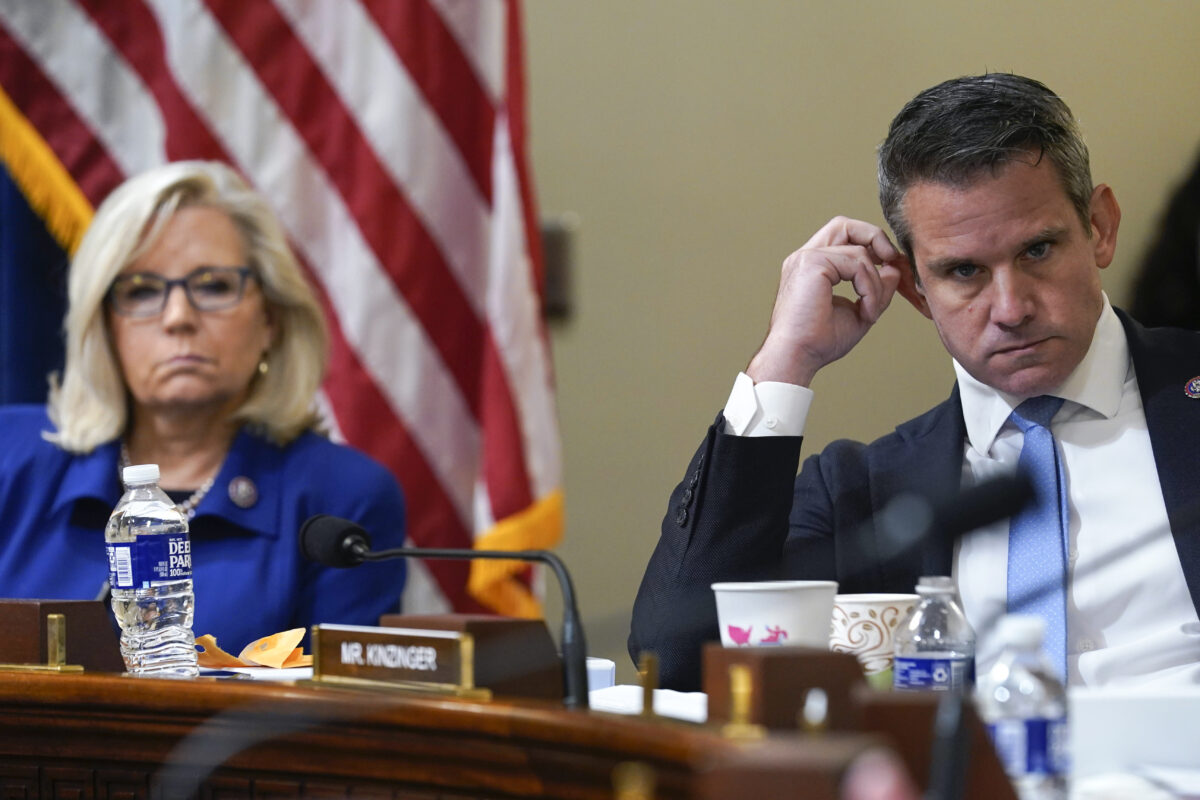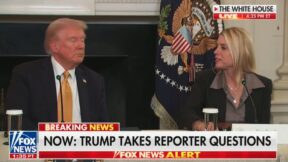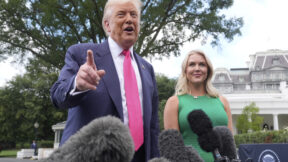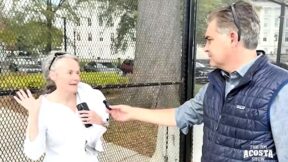Adam Kinzinger Admits He’s Guilty of Political Cowardice By Voting for Trump and Opposing First Impeachment, Says He Felt ‘Dirty’ Casting That Ballot

Andrew Harnik-Pool/Getty Images
In a candid interview with The Washington Post, Rep. Adam Kinzinger (R-IL) admitted feeling guilty for the political cowardice of voting for former President Donald Trump in 2020 and against Trump’s first impeachment, saying he felt “dirty” casting that ballot.
In the article, headlined “The education of Adam Kinzinger,” the Illinois congressman shares his thoughts on Trump’s negative effects on the GOP with the Post’s Paul Kane — and he acknowledged his own past struggles to stand up to the former president’s influence.
First elected to Congress in the 2010 tea party wave, Kinzinger arrived in Washington as a darling of the Republican party establishment, one of the “Young Guns” recruited and supported in their campaigns by the NRCC and leaders like Rep. Kevin McCarthy (R-CA).
Kinzinger said that he once viewed McCarthy as a “true friend,” but disagreements over Trump had driven them apart, telling Kane that he was “angry” with these Republicans who knew Trump lost the 2020 election, “who could have stood up and knew better,” but were too scared of the GOP base to say such things publicly.
Trump didn’t get Kinzinger’s vote in 2016, and the congressman confessed that he “got super drunk” at a GOP legislative policy retreat in January 2017 after the newly-inaugurated Trump visited them, and then spent much of his presidential term “compartmentalizing a few good policy positions while politely disagreeing with Trump on his erratic moves,” wrote Kane, and then “found an excuse to oppose impeachment” in Trump’s first trial regarding the call with Ukrainian President Volodymyr Zelensky:
Democrats had rushed their case and not fully investigated the charges, he said at the time. But now, looking back, he admits that he was afraid of the conservative voters in his exurban district that wraps around Chicago. “It’s like I knew, if I voted for that, I was done,” he said.
By the fall of 2020, Kinzinger pulled off the worst rationalization of his political career: He voted for Trump. “That way I can say with a straight face I voted for him,” Kinzinger explained, thinking about future discussions with voters. “I know he is not going to win, but I can say I did it. And so I have credit with the base.”
Didn’t that make him the sort of political coward he now despises? “Yeah, I was. Yeah, absolutely,” Kinzinger admitted, saying he felt “dirty” casting that ballot. “It’s not something I can square away in my soul fully.”
Trump’s embrace of conspiracy theories and baseless claims of election fraud in the wake of his 2020 loss was the final straw for Kinzinger, not only leading him to call for Trump’s removal from office via the Twenty-Fifth Amendment the day after the Jan. 6, 2021 attack on the U.S. Capitol and vote in favor of Trump’s second impeachment, but to join Rep. Liz Cheney (R-WY) on the House Select Committee investigating the riot.




